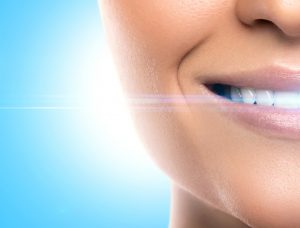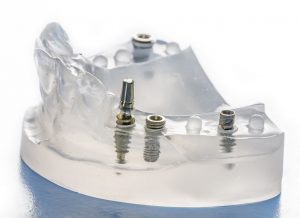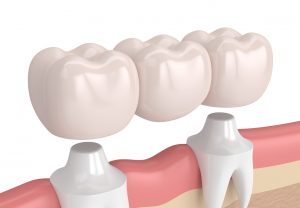 When you receive news that you have to do some extra work, it can be easy to slip into procrastination mode, especially if it means more hassle for you. Fear of needing extra treatment actually keeps a lot of people away from their biannual dentist appointments, but that only makes the problem worse. When you need extra treatment, like root canal therapy, you can’t afford to procrastinate. Putting off the care you need will result in further damage and a more costly fix. (more…)
When you receive news that you have to do some extra work, it can be easy to slip into procrastination mode, especially if it means more hassle for you. Fear of needing extra treatment actually keeps a lot of people away from their biannual dentist appointments, but that only makes the problem worse. When you need extra treatment, like root canal therapy, you can’t afford to procrastinate. Putting off the care you need will result in further damage and a more costly fix. (more…)
Preventive Dental Care Is Worth Your Time
 Why put off tomorrow what you can do today? That old saying absolutely rings true when it comes to dentistry. All the preventive care steps that you take today — regular checkups and home care — will save you time, money, and hassle in the future. Preventive dental care is absolutely worth your time. If you aren’t doing all you can to care for your teeth, it’s time to make some adjustments to your home routine. You could circumvent some major problems by acting now. (more…)
Why put off tomorrow what you can do today? That old saying absolutely rings true when it comes to dentistry. All the preventive care steps that you take today — regular checkups and home care — will save you time, money, and hassle in the future. Preventive dental care is absolutely worth your time. If you aren’t doing all you can to care for your teeth, it’s time to make some adjustments to your home routine. You could circumvent some major problems by acting now. (more…)
Start Your Child’s Dentist Appointments Early
 If you’re raising your first child, you’re engaged in new experiences all of the time. As much as you can try to prepare, there’s nothing like actually caring for a child! You may be wondering about best practices when it comes to any number of topics. In the realm of dentistry, your Cedar Rapids dentist has you covered. You may not be aware of this, but children need dental care from a young age. As soon as your child’s first tooth erupts from his or her mouth, you should begin caring for that tooth. Part of good dental care means scheduling dental appointments. When your child sees a dentist from an early age, they aren’t just receiving a quality cleaning. (more…)
If you’re raising your first child, you’re engaged in new experiences all of the time. As much as you can try to prepare, there’s nothing like actually caring for a child! You may be wondering about best practices when it comes to any number of topics. In the realm of dentistry, your Cedar Rapids dentist has you covered. You may not be aware of this, but children need dental care from a young age. As soon as your child’s first tooth erupts from his or her mouth, you should begin caring for that tooth. Part of good dental care means scheduling dental appointments. When your child sees a dentist from an early age, they aren’t just receiving a quality cleaning. (more…)
Whip Your Teeth Into Shape with Contouring
 Regular maintenance is a practical approach to anything you want to preserve. When you take the long view, it’s easier to make time for a little touch up here and there. When it comes to your teeth, regular maintenance isn’t just a methodology for sustaining the health of your teeth, it can also be taken as a cosmetic approach. A slight cosmetic touch up can do your smile a lot of good. Bonding and contouring are the perfect cosmetic treatments for lightly shaping and touching up your smile. If you’re not familiar with dental bonding and contouring, here’s how these minimally invasive techniques can whip your smile into shape. (more…)
Regular maintenance is a practical approach to anything you want to preserve. When you take the long view, it’s easier to make time for a little touch up here and there. When it comes to your teeth, regular maintenance isn’t just a methodology for sustaining the health of your teeth, it can also be taken as a cosmetic approach. A slight cosmetic touch up can do your smile a lot of good. Bonding and contouring are the perfect cosmetic treatments for lightly shaping and touching up your smile. If you’re not familiar with dental bonding and contouring, here’s how these minimally invasive techniques can whip your smile into shape. (more…)
There’s No Age Restriction for Dentures
 Most people hear the word “dentures” and they start to picture an elderly person taking an entire set of teeth out of their mouth. However, dentures aren’t an age-dependent treatment, and they aren’t just for complete tooth replacement. There’s no age restriction for dentures, and in fact, they’re a very useful option for tooth replacement if you’ve suffered any degree of tooth loss. Partial dentures can fit around your remaining teeth to create an appearance that matches your original teeth and smile. This is a great option for recovering from extensive, but incomplete tooth loss. Is it time for you to explore dentures and how they could benefit you? (more…)
Most people hear the word “dentures” and they start to picture an elderly person taking an entire set of teeth out of their mouth. However, dentures aren’t an age-dependent treatment, and they aren’t just for complete tooth replacement. There’s no age restriction for dentures, and in fact, they’re a very useful option for tooth replacement if you’ve suffered any degree of tooth loss. Partial dentures can fit around your remaining teeth to create an appearance that matches your original teeth and smile. This is a great option for recovering from extensive, but incomplete tooth loss. Is it time for you to explore dentures and how they could benefit you? (more…)
Get Your New Smile in a Snap

It’s too often that we don’t get what we want or need because we’re worried about the hassle. Inconvenience can prevent you from living your best life. This is a common theme when it comes to cosmetic dentistry. Patients are often worried about undertaking a significant procedure and scheduling multiple appointments. Everyone has a busy schedule, so shifting things around again and again is far from ideal. However, there is a cosmetic solution that eliminates hassle from the process. You can have the bright, beautiful smile you want, without added stress. Professional teeth whitening is a cosmetic fix that can benefit you right away.
Professional Teeth Whitening Doesn’t Involve a Permanent Change Like Veneers
Porcelain veneers are an attractive cosmetic option for many people because they can correct for misshapenness, color, and size, all in one fix. However, in order to receive porcelain veneers, your dentist must lightly shape your teeth and bond the veneers to their surfaces. This represents a more permanent change than some patients are comfortable with. A professional teeth whitening treatment can brighten your smile right away without any surgical procedure. That means you don’t have to make any significant alterations to your existing teeth to enjoy the cosmetic benefit.
Professional Teeth Whitening Covers a Wide Range of Cosmetic Blemishes
Professional teeth whitening is such a popular cosmetic option because it can cover up and adjust such a wide number of cosmetic blemishes. If you’ve got staining or discoloration on your teeth, a professional whitening can correct this condition. What you eat and drink will naturally cause your teeth to fade from white over time. However, it’s not the end of your opportunity to enjoy a perfect smile. Everyone deserves to feel good about their smile. Now, you don’t have to worry about hassle to do so.
Learn More About Snap-On Smile from The Austin Dentist
Cedar Dental is your home for cosmetic dentistry treatment that comes without hassle. You don’t have to let cosmetic blemishes hold you back from feeling good about your smile. Great options like professional teeth whitening are affordable and easy to use. Schedule an appointment for a cosmetic dentistry consultation with Cedar Dental in Cedar Rapids, IA by contacting the office at 319-364-7108.
Asking Questions About Teeth-Whitening
 The bad news about some teeth stains is that you can’t always prevent them. Even if you consistently brush and floss your teeth and have them professionally cleaned, they can still develop stains from being exposed to food, beverages, and more. The good news, though, is that even when they do appear, most common teeth stains can be erased just as easily with custom-designed professional teeth-whitening. If your teeth are stained, then ask your dentist if a take-home teeth-whitening kit is right for you. (more…)
The bad news about some teeth stains is that you can’t always prevent them. Even if you consistently brush and floss your teeth and have them professionally cleaned, they can still develop stains from being exposed to food, beverages, and more. The good news, though, is that even when they do appear, most common teeth stains can be erased just as easily with custom-designed professional teeth-whitening. If your teeth are stained, then ask your dentist if a take-home teeth-whitening kit is right for you. (more…)
Why Dental Implants Are Better for Your Smile
 Despite our advancements in dental health and technology, you still can’t grow back a lost permanent tooth. However, with today’s advanced dental prostheses, you can rebuild your smile with such comfortable and lifelike results that it doesn’t have to dramatically impact your quality of life. Whether you need to replace one, several, or all of your teeth, a custom-designed bridge or denture can mimic them with incredible precision. However, even today’s conventional bridges and dentures have limits in how much they can do for your smile, which is why it’s typically better to support them on dental implants rather than more traditional methods. (more…)
Despite our advancements in dental health and technology, you still can’t grow back a lost permanent tooth. However, with today’s advanced dental prostheses, you can rebuild your smile with such comfortable and lifelike results that it doesn’t have to dramatically impact your quality of life. Whether you need to replace one, several, or all of your teeth, a custom-designed bridge or denture can mimic them with incredible precision. However, even today’s conventional bridges and dentures have limits in how much they can do for your smile, which is why it’s typically better to support them on dental implants rather than more traditional methods. (more…)
A Few Things to Consider About Dental Bridges
 Dental bridges have been around for ages, and for good reason. Their design has always effectively helped restore patients’ smiles and their bite function, and today, that design remains similar to the original concept. However, with the help of advanced diagnostic and imaging technology, lifelike dental materials, and innovative prosthetic dental techniques, today’s bridges can offer significant benefits for the long-term health of your smile. Today, we examine a few of the most important things to consider about modern dental bridges and their ability to address the multiple concerns of tooth loss. (more…)
Dental bridges have been around for ages, and for good reason. Their design has always effectively helped restore patients’ smiles and their bite function, and today, that design remains similar to the original concept. However, with the help of advanced diagnostic and imaging technology, lifelike dental materials, and innovative prosthetic dental techniques, today’s bridges can offer significant benefits for the long-term health of your smile. Today, we examine a few of the most important things to consider about modern dental bridges and their ability to address the multiple concerns of tooth loss. (more…)
Things Tooth Extraction Can Fix
 The best thing you can do for your smile is to take every measure necessary to preserve your healthy, natural smile. For instance, by simply sticking to a good hygiene routine every day and visiting your dentist as often as recommended, you can prevent most of the issues that threaten your teeth. However, in some extreme cases, the only way to preserve the rest of your healthy teeth is to extract the compromised one before it can cause any more damage. (more…)
The best thing you can do for your smile is to take every measure necessary to preserve your healthy, natural smile. For instance, by simply sticking to a good hygiene routine every day and visiting your dentist as often as recommended, you can prevent most of the issues that threaten your teeth. However, in some extreme cases, the only way to preserve the rest of your healthy teeth is to extract the compromised one before it can cause any more damage. (more…)




Recent Comments